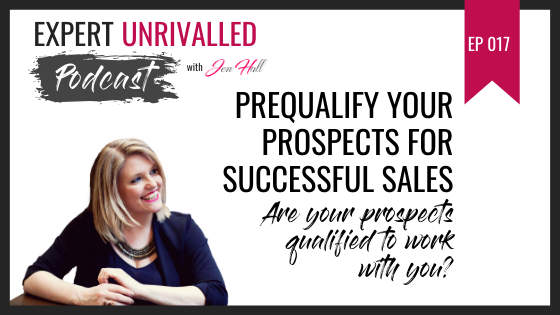Fed up of taking calls with less than ideal prospects, brain pickers, and time wasters? Do your calls feel really icky and awkward?
Fear not, it’s time to get a pre-qualification strategy in place…
In this episode we cover –
- How to prequalify your prospects in three simple stages to ensure you ONLY speak to the best people.
- Turn your calls into a sales success without that icky and awkward feeling.
- The red flags you should look out for when prequalifying AND the surprising red flag that you should ignore.
Useful Links:-
Book a Call with Jen – bit.ly/claritycallpodcast
Send your emails to jen@jen-hall.com
[spp-transcript]

